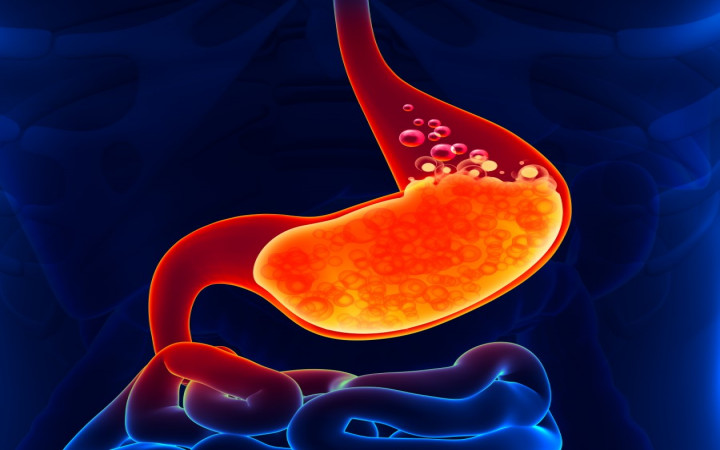Today’s Wonder of the Day was inspired by ethan. ethan Wonders, “how powerful is stomach acid” Thanks for WONDERing with us, ethan!
There are some substances on Earth that children of all ages seem to be fascinated with. For example, lava captures the imagination in a way that few other things can.
The thought of molten rock running down a mountain burning up everything in its path gives us thrills and chills. Some children even play games like “The Floor is Lava.” They pretend some areas are filled with hot lava and off-limits.
Likewise, many children are amazed by the corrosive powers of acid. Have you ever seen a piece of metal turned to a bubbling, fizzing liquid when it encounters acid? If so, you know how powerful acid can be.
Many people don’t know that their own stomachs contain powerful acid. You may know all about stomach acid and how it helps us digest food. But it’s not that powerful, is it? You bet it is!
Stomach acid, sometimes called gastric acid, is made up of potassium chloride, sodium chloride, and hydrochloric acid. Exactly how strong is stomach acid? Well, acids are measured on a scale known as the pH scale. The pH scale goes from 0 to 14. 0 is the most acidic, 7 is neutral, and 14 is the least acidic.
The pH of stomach acid usually ranges from 1 to 3. At its strongest, the pH of stomach acid just below that of battery acid! That’s why it’s able to eat through the food in your stomach pretty quickly.
Just how long does it take for stomach acid to break down food? That depends on the food itself. When a person eats food with lots of sugar, like candy, the acid breaks it down pretty quickly. Foods that are higher in protein take much longer. That barbequed pork you ate for dinner a few nights back? Your stomach acid may have taken up to four hours to break it down. That’s why eating protein keeps you full longer than eating sugar.
With such powerful acid in our stomachs, what stops it from eating a hole right through us? You can thank your stomach’s epithelial cells for protecting you. These specialized cells produce a solution of mucus and bicarbonate that coats the inside of the stomach.
The bicarbonate is a base that neutralizes stomach acid. The mucus made by the epithelial cells also forms a on the walls of the stomach. That protects your stomach lining from the acid.
Of course, these systems don’t always work perfectly. Some people struggle with stomach problems in which too much acid is made. When that happens, the epithelial cells can’t keep up with the task of protecting the stomach lining. Stomach acid can then damage the lining of the stomach. This creates what doctors call gastric ulcers.
Ulcers are very painful. Luckily, the can be treated with the help of a doctor. Other issues caused by stomach acid include acid reflux and heartburn. Despite these problems, stomach acid is very important. You need it in order to properly digest the food you eat.
Standards: NGSS.LS1.A, NGSS.LS1.C, CCRA.L.3, CCRA.L.6, CCRA.R.1, CCRA.R.2, CCRA.R.4, CCRA.R.10, CCRA.SL.1, CCRA.SL.2




